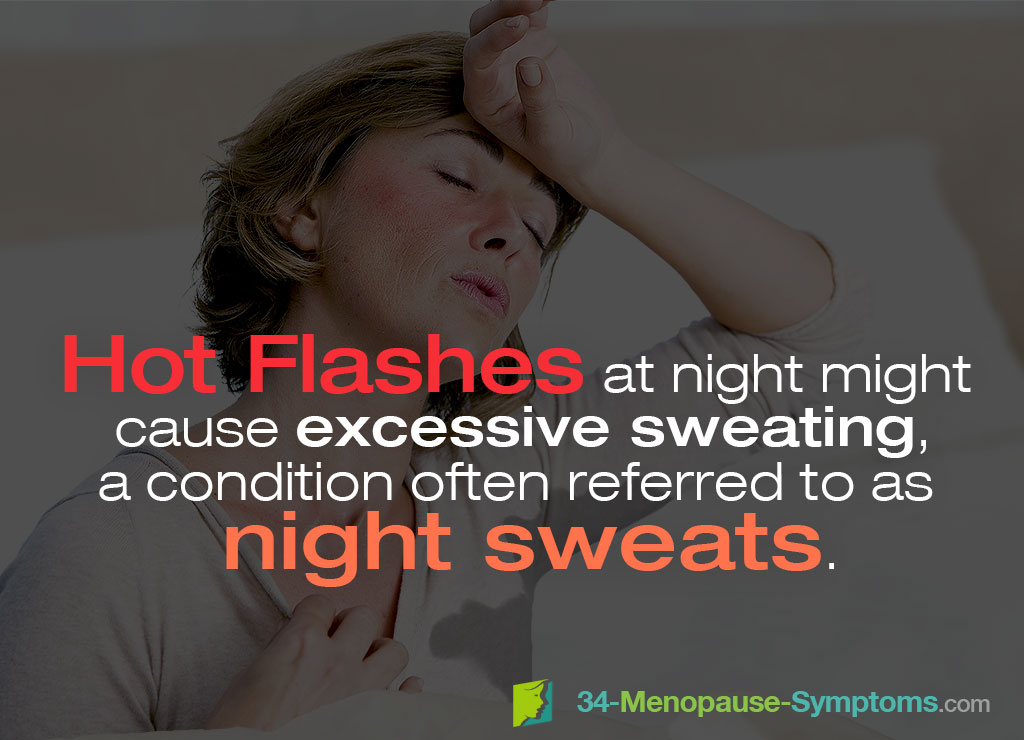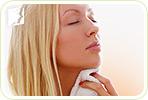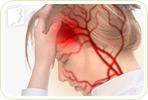Hot flashes are possibly the most well-known symptom of menopause, and they can happen at any time, including while sleeping. Hot flashes at night might cause excessive sweating, a condition often referred to as night sweats, or nocturnal hyperhidrosis. While this does happen to some women, it is possible to suffer with either condition, without experiencing the other. Read on to find out more about how the two problems can relate to each other.
Hot Flashes Can Cause Night Sweats
Menopausal changes are known to be the most common factor regarding what causes hot flashes at night. The hormonal implications during this period of a woman's reproductive life interact with the chemicals in the brain, which can then influence body temperature. This can cause the body to become overheated; the reason behind hot flashes.
If these occur during the night, it is possible for the body to react in the form of perspiration - a natural bodily process designed to quickly cool you. This type of night sweat then, is a direct consequence of menopausal hot flashes. In this instance, both conditions have similar symptoms:
Redness or flushing especially in the neck and face
Sensation of intense heat
Excessive perspiration
Disturbed sleep
Other Causes of Hot Flashes
Excessive alcohol consumption. Regular consumption of alcohol can also contribute to hot flashes - avoiding or limiting alcohol should decrease their frequency and intensity.
Obesity. Being overweight can greatly exasperate hot flashes.
Infection. Bacterial infections, such as tuberculosis and HIV can cause fever, resulting in night sweats.
Anxiety. Emotional stress can manifest itself in the form of night sweats. If you are experiencing anxiety it might be advantageous to consider therapy.
Medication. Some antidepressants, diuretics, and blood pressure medication have night sweats among their side effects.
How to Cope with Night Sweats and Hot Flashes
Becoming overheated at night can be harder to treat than daytime episodes because you are usually less prepared and might be more limited in ways to cool down. If you are prone to nighttime hot flashes and sweating, the following suggestions could be beneficial to you:
Keeping a cool bedroom
Cut down on alcohol and spicy foods
Eat healthy and exercise regularly
Hormone regulating medications
It is widely considered that night sweats are a form of hot flashes at night, but the fact is that both can have different causes and treatments - and it is possible for a woman to experience one without the other. Depending on your personal circumstances regarding health, it might be that both can be attributed to one cause; however, it is important to look into other aspects too and seek medical advice.
Sources
- Mayo Clinic. (2017). Night Sweats. Retrieved June 7, 2017, from http://www.mayoclinic.org/symptoms/night-sweats/basics/causes/sym-20050768
- National Health Service UK. (2015). Hot flushes: how to cope. Retrieved June 7, 2017, from http://www.nhs.uk/Livewell/menopause/Pages/hot-flushes.aspx
- University of California San Francisco. (2010). Weight loss reduces hot flashes in overweight and obese women. Retrieved June 7, 2017, from https://www.ucsf.edu/news/2010/07/4427/weight-loss-reduces-hot-flashes-overweight-and-obese-women
- National Health Service UK. (2015). Tuberculosis (TB). Retrieved June 7, 2017, from http://www.nhs.uk/Conditions/Tuberculosis/Pages/Introduction.aspx




